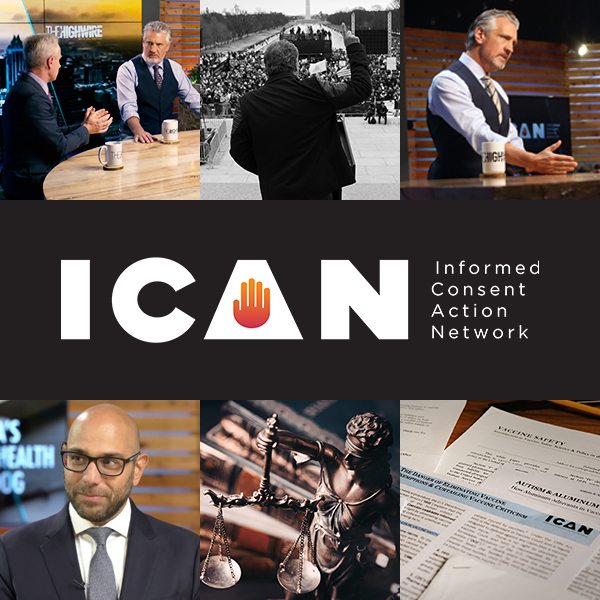FOR IMMEDIATE RELEASE
Austin, TX — Informed Consent Action Network (ICAN) and its lead attorney, Aaron Siri, Esq., have responded to a recent New York Times article that misrepresents ICAN’s 2022 petition to the FDA regarding the polio vaccine known as IPOL. The article inaccurately claims that Mr. Siri personally “petitioned the government to revoke its approval of the polio vaccine,” an assertion that distorts both the purpose and scope of the petition.
ICAN’s petition calls for the FDA to revoke the approval of IPOL, but only for infants and children and only until a proper clinical trial is conducted. The petition highlights significant safety concerns about IPOL’s licensure process in 1990, which relied on trials reviewing safety for only three days post-injection—a standard that falls far short of federal requirements for vaccine approval.
Contrary to public perception, IPOL is not the same vaccine developed by Jonas Salk or Albert Sabin. Instead, it is produced using new technology, including virus growth on modified monkey kidney cells, which behave similarly to cancer cells. These details are outlined in ICAN’s petition, which is publicly available for review: Read the Petition.
The Facts Behind ICAN’s Petition
- Safety Review Concerns: FDA documents confirm that IPOL’s safety was assessed for only three days after injection in pediatric trials.
- Technological Differences: Unlike earlier polio vaccines, IPOL utilizes “vero cells,” which are continuous monkey kidney cells with modified chromosomes. These cells are susceptible to infection by various viruses, raising concerns about long-term safety.
- FDA’s Lack of Evidence: ICAN submitted Freedom of Information Act (FOIA) requests for clinical trial reports supporting IPOL’s safety. The documents provided by the FDA did not adequately address these concerns.
Public Health and Transparency
ICAN’s petition is a reasonable request to ensure that vaccines administered to children meet rigorous safety standards. With childhood chronic diseases increasing from 13% in the 1980s to over 50% today—many of which are immune-related—ensuring the safety of vaccines is more important than ever.
Instead of addressing these legitimate safety concerns, the NYT article uses fear-based anecdotes, such as a 2022 case of vaccine-derived polio paralysis, while omitting critical context: the last wild polio case in the United States was in 1979. Moreover, according to the CDC, while inactivated polio vaccines like IPOL prevent disease symptoms, they do not stop transmission of the virus.
ICAN stands firm in its commitment to ensuring vaccine safety and transparency. The organization urges the NYT to uphold journalistic integrity by revising its misleading coverage and addressing the substantive concerns raised in ICAN’s petition.
About ICAN
Informed Consent Action Network is dedicated to investigating vaccine safety and promoting informed consent in all medical decisions. For more information, visit ICANdecide.org.
For media inquiries, please contact:
ICAN Media Office
[email protected]
